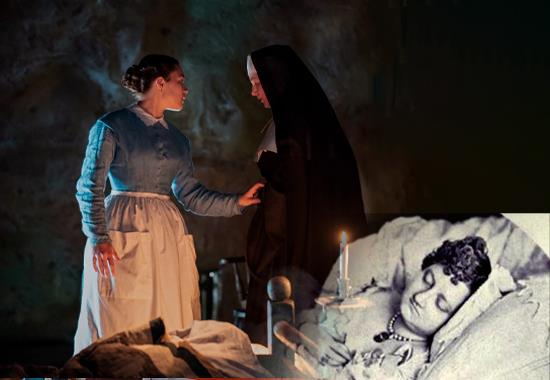Widely acclaimed Hollywood actress Florence Pugh is all set to take over the OTT platform as her movie The Wonder will be released on Netflix on November 16, 2022. Among of the most awaited movies, The Wonder is an upcoming psychological period drama based on the 2016 novel of the same name. It is helmed by the Academy Award-winning director Sebastian Lelio from a screenplay by Emma Donoghue, Lelio, and Alice Birch. The Wonder star cast includes Florence Pugh in the female lead role as Lib Wright, Tom Burke playing the male lead role as William Byrne including Kila Lord Cassidy as Anna O’Donnell, Niamh Algar, Elaine Cassidy, Toby Jones, Ciaran Hinds, Dermot Crowley, Brian F. O’Byrne and David Wilmot. Since it is based on a Novel, the question arises whether The Wonder is a true story or The Wonder is a real story or not.
The answer to this question is yes. The Wonder is a true story set in the 19th century and tells the real story of a social phenomenon called the 'fasting girls,' where young girls claimed to be able to go without eating for months. Although there were many cases reported relevant to the 'fasting girls', the most famous one being of Sarah Jacob. Sarah Jacob was a young Welsh girl who died of starvation in 1869. Therefore, to under The Wonder true story, we have to understand both 'Fasting Girls' and Sarah Jacob.
Fasting Girls
Real vs Reel: Is 2 Hearts a true story based on Jorge Bacardi of Bacardi Rum dynasty
For the unversed, 'Fasting girls' is a term referring to a number of young Victorian era girls, usually pre-adolescent, who claimed to be able to survive over indefinitely long periods of time without consuming any food or other nourishment. In addition to refusing food, fasting girls claimed to have special religious or magical powers. Numerous cases of fasting girls were reported in the late 19th century. Believers regarded such cases as miraculous. Doctors, however, such as William A. Hammond ascribed the phenomenon to fraud and hysteria on the part of the girl. Historian Joan Jacobs Brumberg believes the phenomenon to be an early example of anorexia nervosa.
Coming to Sarah Jacob, 'the Welsh Girl' convinced a section of people including Vicars not to eat food at all after the age of ten. As people were convinced from Sarah's claims, she enjoyed a long period of publicity, during which she received numerous gifts and donations from people who believed she was miraculous. However, Doctors did not believe her claims and eventually proposed that she be monitored in a hospital environment to see whether her claims about fasting were true. In 1869, her parents agreed for a test to be conducted under strict supervision by nurses. The nurses were instructed not to deny Jacob food if she asked for it, but to see that any she received was observed and recorded. After two weeks, she was showing clear signs of starvation. As a result, Sarah Jacob died of starvation a few days later and it was found that she had actually been consuming very little amounts of food secretly, which she could no longer do under medical supervision.
